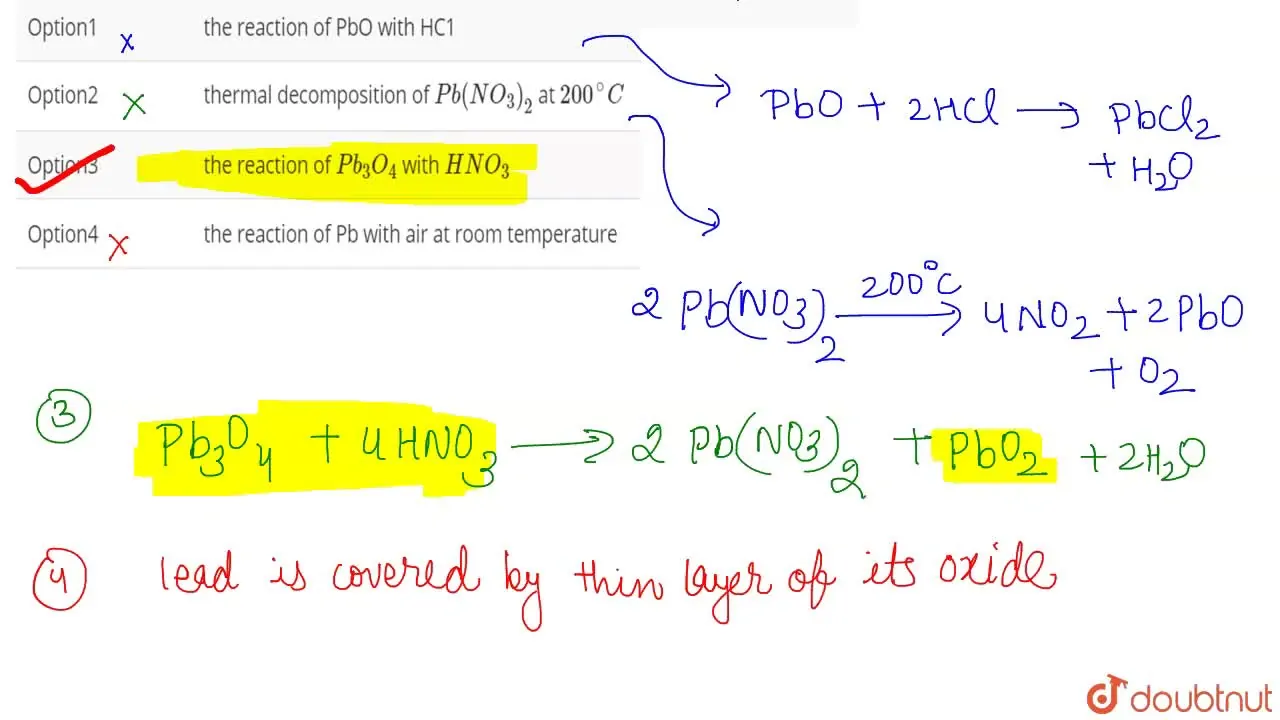PbO2 is obtained from
A
the reaction of PbO with HC1
B
thermal decomposition of Pb(NO3)2 at 200∘C
C
the reaction of Pb3O4 with HNO3
D
the reaction of Pb with air at room temperature
Video Solution
|
Answer
Step by step video & image solution for PbO_2 is obtained from by Chemistry experts to help you in doubts & scoring excellent marks in Class 11 exams.
Updated on:21/07/2023
Similar Questions
Industrially H2O2 is obtained from :
View SolutionIndustrially H2O2 is obtained from :
View SolutionSO2 will be obtained from the following
View SolutionPure N2 gas is obtained from
View SolutionAcetylene is obtained from CaC2
View SolutionSO2 will be obtained from the following:
View SolutionAcetylene is obtained from CaC2
View Solution2-methyl propan-1-ol is obtained from
View SolutionVitamin B2 (riboflavin) is obtained from
View SolutionHow is ethanol obtained from 2- butene?
View Solution


